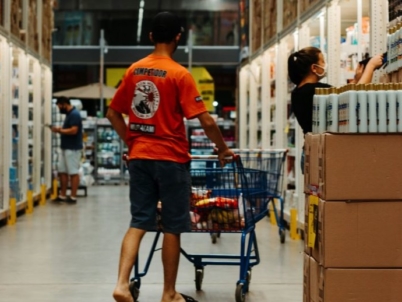-
Rite-Hite unveils new range of hydraulic kits to upgrade and extend dock leveller performance - 2 days ago
-
REWE and Cimcorp automate fresh supply chain for Berlin supermarkets and stores - 2 days ago
-
Q1 – A recovery period or time to fix, switch and scale? - 2 days ago
-
NULOGY’S SHOP FLOOR SOFTWARE TO POWER COMPLETE CO-PACKING’SOPERATIONS - February 13, 2026
-
Why lead generation depends upon good content - February 13, 2026
-
Wallapop and Albatross Sign Strategic Partnership to Bring Real-Time AI Discovery to the Future of Consumer-to-Consumer Commerce - February 12, 2026
-
Thorworld ramp helps Hubergroup to streamline its unloading operation - February 6, 2026
-
TRACKER INNOVATION FROM QUECLINK TO BOOST STOLEN VEHICLE RECOVERY PERFORMANCE - February 4, 2026
-
Flexi Narrow Aisle hits 50! - January 29, 2026
-
DERRY BROS ATTRACTS RECORD NUMBERS OF FREIGHT CUSTOMERS SEEKING CUSTOMS SUPPORT - January 29, 2026
Autonomous mobile robots from LiBiao Robotics are at the heart of a highly innovative vaccine management system that is now operational within the Fengxian district Community Hospital in Shanghai, one of several large general hospitals that serve China’s biggest city.
The robots have replaced a conveyor system that had previously been deployed to pick and deliver vaccines to a dedicated area within the hospital where doctors or nurses administer injections to patients.
The introduction of the LiBiao technology along with other automated storage and picking hardware that makes up the application process, has brought several benefits to the hospital facility – including an overall improvement in picking accuracy, which is clearly critical within any healthcare environment.
The LiBiao robots shuttle between vaccination stations and the vaccine storage and dispensation area where an automated real-time vaccine sorting system has replaced the need to search for and pick the vaccines manually.
The switch to automated picking has eliminated the risk of human error causing the wrong vaccine to be selected and precise dispensing is now assured.
The system also automatically conducts stock checks, which mitigates against vaccine expiry. This has resulted in a reduction in the amount of inventory that has to be disposed of because it has been kept in storage beyond its ‘use-by’ date.
Refrigerated vaccine storage units ensure stock is always kept at the correct temperature while the temperature of the vaccine transmission pathways travelled by the LiBiao robots is also controlled ensuring complete cold chain safety of the medicine.
The new system has been very well received by doctors and nurses at the hospital who enjoy the user-friendly and aesthetically pleasing working conditions that the robotic system has created.
And, perhaps more importantly, the patients like it too. Children, for example, find the mobile robots fascinating and watching them perform their routine often works as a distraction that helps them to stop thinking about the procedure that they are about to undertake – which many people find stressful.
The vaccine management system was designed and installed by LengWang. Such has been the success of the project that a similar system – again using LiBiao autonomous mobile robots – is set to be deployed at what, when complete, is expected to be the largest vaccination centre in Asia.
The new centre in Jiashan, Zhejiang province (which borders Shanghai to the northeast) will have 12 vaccination stations from where a range of vaccines will be administered to patients when the facility opens later this year.

































